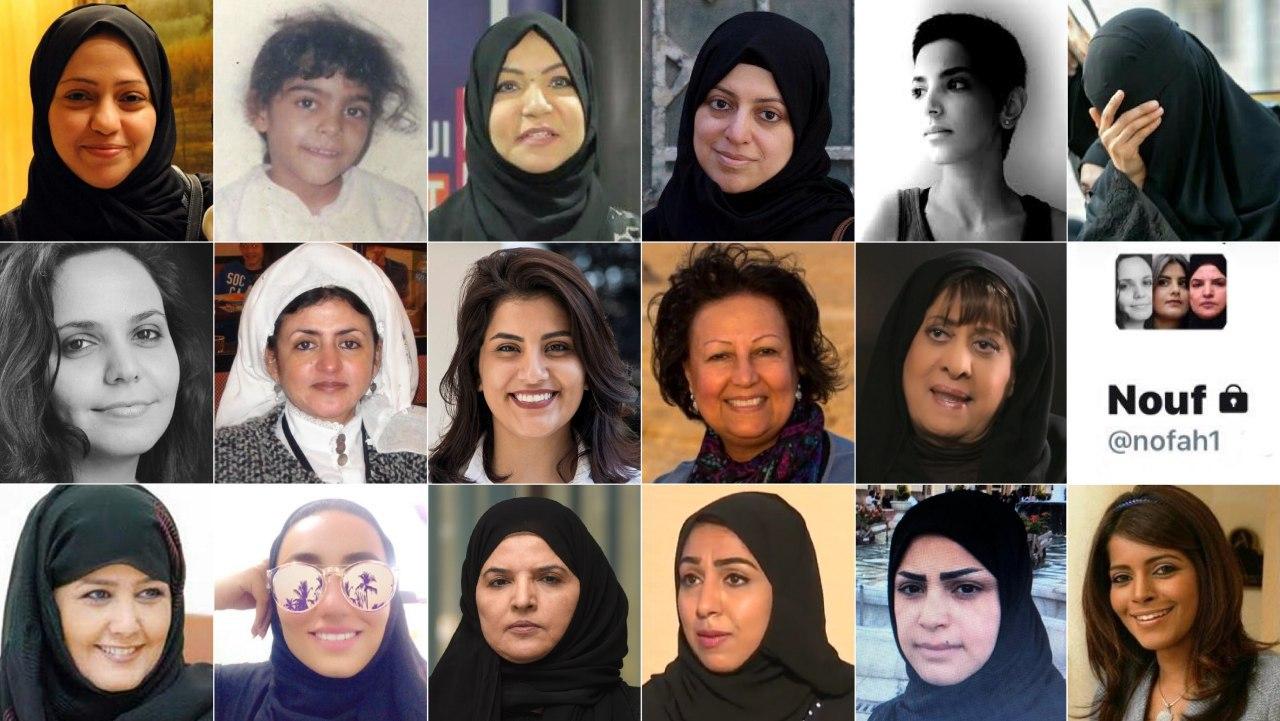
As the world celebrates International Women’s Day on March 8, ESOHR pays tribute to the Saudi women who have bravely fought, sacrificed, and triumphed, and are still paying the price.
As on occasion to reflect on progress made,tocall forchange, and to “celebrateacts ofcourageand determination by ordinarywomen who have played anextraordinary role in the history of their countries and communities,” the world is celebrating International Women’s Day under the theme, “I am Generation Equality: Realizing Women’s Rights.”
True change, which according to the UN has been slow and painful for most women and girls throughout the world, has been even slowerand more painful in Saudi Arabia. While the government in recent years has lifted some restrictions on freedom of movement and has stopped denying women certain rights to education, employment, and the like, dozens of female human rights advocates and activists, who for decades have led movements demanding change, have paid the price. Many of them currently remain in detention, such as Israa al-Ghomgham, Naima al-Matrood, Samar Badawi, Loujain al-Hathloul, and Nassima al-Sada, while others have been released and are still on trial, includingShadanal-Anezi, Iman al-Nafjan, and Aziza al-Yousef.Arbitrary detention is accompanied by trials lacking any semblance of fairness, and these women reportedly suffer from ill-treatment and torture, including sexual harassment.
In a statement on International Women’s Day, the UN noted that despite human rights advances, the world has not yet achieved gender equality. Furthermore, legal restrictions have kept more than 2.5 billion women from accessing the same choice of jobs as men.As of 2019, less than 25% of parliamentarians were women; and one in three women still experience gender-based violence.
ESOHR emphasizes that Saudi Arabia remains on the list of countries where women suffer from discriminatory policies. In the area of employment, statistics indicate that Saudi women are still paid less than about half as much as men, and there are no laws against this. And although the law does not require the permission of a guardian for a woman to work, many employers require it.
Regarding the number of women parliamentarians, although there is no Saudi parliament in the popularly-elected sense, the percentage of women in the Shura Council – which Saudi Arabia puts forth as a parliament even though it is wholly appointed by the king – does not exceed 20%. While the Saudi government restricted and went after many women activists who tried to run in municipal council elections, it later proceeded to arrest some of them on pretences that violated international laws and treaties voluntarily joined by Saudi Arabia.
Although the Saudi government extols laws that criminalize domestic violence, Saudi women are abused and lack effective protection. They still must obtain permission from a male guardian to leave shelters for battered women. It should be noted that the government has not taken serious and adequate steps to hold domestic abusers accountable, nor does it deal seriously with reports of abuse until after the issue is raised in the media. There is no guarantee that cases are monitored so as to achieve full justice and ongoing protection. Women’s lack of faith in the Saudi government’s policies is apparent in the ongoing escape of girls from their homes who tell their stories on media sites, such as Nojoud al-Mandeel, who recently published the story of her beating and burning under the hashtag #Nojoud_al-Mandeel_battered.
International Women’s Day calls for equality under the law and in the culture, yet women in Saudi Arabia are still prohibited from marrying without permission from their guardian and suffer from systematic unfair discrimination under the law and in practice in areas such as marriage, divorce, and the ability to transfer their nationality to their children.
Saudi Arabia is trying to use women to improve its bad reputation in the field of human rights in general. ESOHR believes that this exploitation is contradicted by reality and confirms the Saudi government’s lack of seriousness and credibility in fully ceasing to deprive women of their natural rights. The Saudi government’s practice of selecting certain women and putting them in front of the media or international gatherings, while at the same time physically and psychologically torturing and punishing other women for demanding their rights, is repugnant and will likely increase discontent. Ultimately, this practice will not be able to cover up the various forms of discrimination, abuse, and oppression against women.
On International Women’s Day, ESOHR salutes the ongoingstruggle of Saudi women who bravely challenge oppression and intimidation and their success in changing the official Saudi approach to women’s rights. Despite the Saudi government’s persecution of women human rights advocates and activists, and despite the ongoing discrimination, abuses, and oppression that prevent women from fully enjoying their rights, the long struggle will inevitably lead to a full enjoyment of rights and an effective presence of the role of women.
